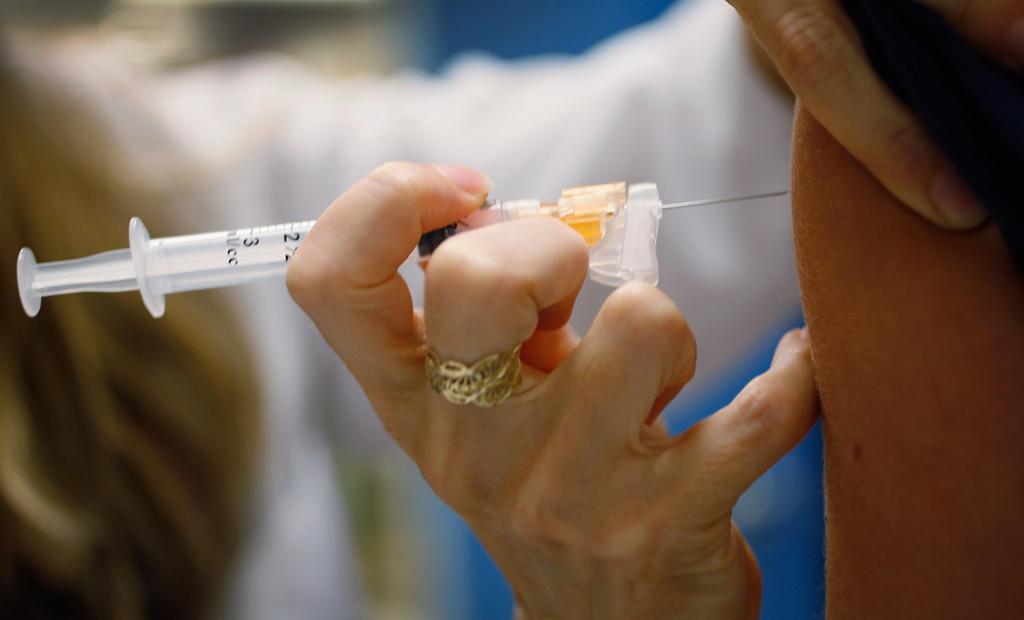2 million cancer cases worldwide caused by infections, new study finds
Pediatrician Judith L. Schaechter gives an HPV vaccination to a 13-year-old girl. The vaccine for human papillomavirus, or HPV, is given to prevent a sexually transmitted infection that can cause cancer.
One in every six cancer cases worldwide are caused by preventable infections, a new study published in the Lancet Oncology review has found.
The study's French researchers looked at data on 27 cancers from 184 countries, and attributed 1.9 million cancer cases in 2008 to four main infections: Human papillomavirus (HPV), hepatitis B and C, and the ulcer inducing Helicobacter pylori, ABC Health News reported.
Less developed countries were far more susceptible to infection-related cancers: only 7.4 percent were reported in more developed countries, compared with 22.9 percent in less developed countries, CNN reported.
More from GlobalPost: Cancer 'encyclopedia' to help personalize cancer care, scientists say
Nearly one third of the cancer cases affected people 50 years or younger, according to BBC News. Cervical cancer, which is predominantly caused by HPV, accounted for about half of all infection-related cancers in women, while 80 percent of cancers diagnosed in men were liver and gastric cancers.
The study authors also estimated that 1.5 million of the 7.5 million cancer deaths worldwide in 2008 were related to infectious diseases, CNN reported.
HPV and hepatitis B infections are largely preventable through vaccination, and H. pylori can be treated with antibiotics, the researchers stressed.
"Infections with certain viruses, bacteria, and parasites are some of the biggest and preventable causes of cancer worldwide," Drs Catherine de Martel and Martyn Plummer, who led the study, said in a statement, BBC reported. "Application of existing public-health methods for infection prevention, such as vaccination, safer injection practice, or antimicrobial treatments, could have a substantial effect on the future burden of cancer worldwide."
More from GlobalPost: USP9x: Gene discovered can 'turn off' pancreatic cancer
In an editorial accompanying the study, which was released on Wednesday, Goodarz Danaei, assistant professor of global health at the Harvard School of Public Health stressed that making vaccines available was a crucial step in developing nations, according to ABC News.
“Most of the infection-attributable cases occurred in less developed countries and were due to preventable or treatable infections,” Danaei wrote. “Since effective and relatively low-cost vaccines for HPV and [hepatitis B] are available, increasing vaccine coverage should be a priority for health systems in high-burden countries.”
More from GlobalPost: Chen Guangcheng: US officials feared dissident had colon cancer
Every day, reporters and producers at The World are hard at work bringing you human-centered news from across the globe. But we can’t do it without you. We need your support to ensure we can continue this work for another year.
Make a gift today, and you’ll help us unlock a matching gift of $67,000!
